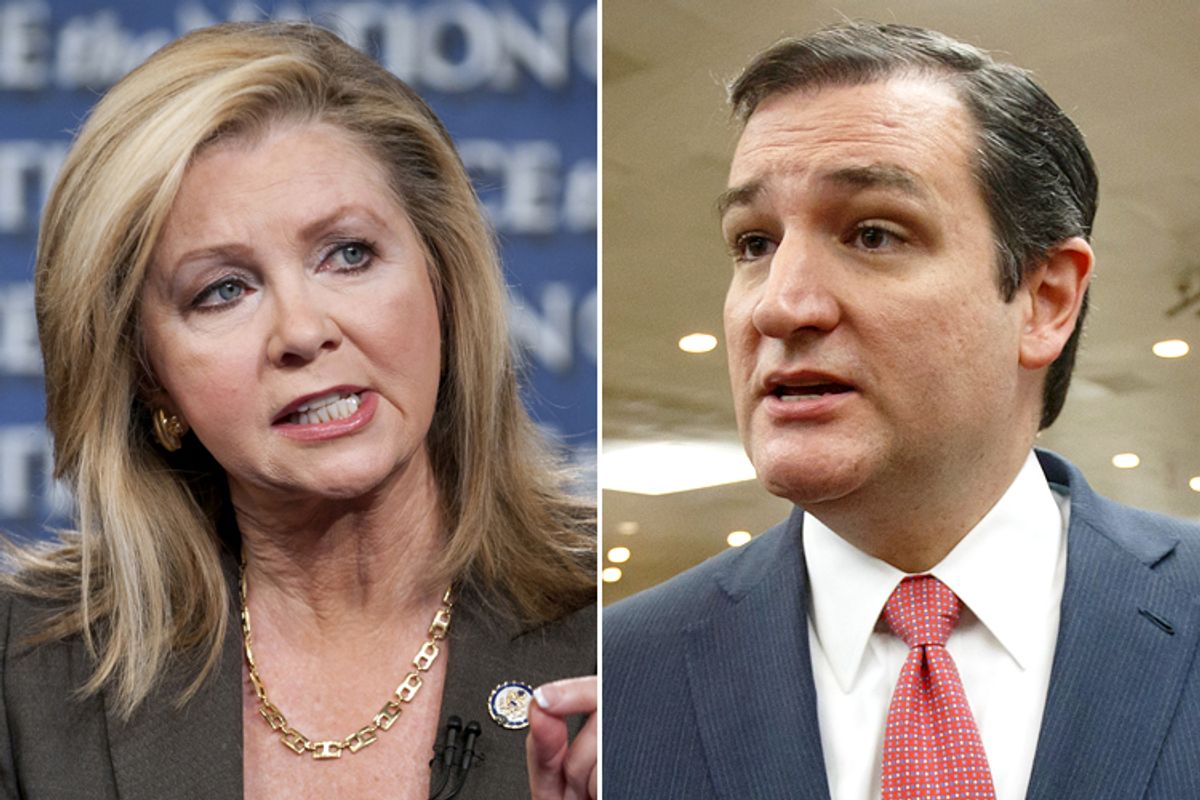Everyone hates Congress. Hating Congress is a grand American tradition. Going back to 1974, the legislature’s approval rating has been mostly in the 20-40 percent range, climbing out only in times of booming economic prosperity, national tragedy and jingoistic warmongering. The reason everyone hates Congress is because it’s a terminally dysfunctional institution that is gummed up by partisan intransigence and thus incapable of taking effective action on any issue.
And in the end that’s all our fault.
Despite the widespread frustration and impossibly high disapproval numbers, we keep reelecting the same cast of idiots. Everyone hates Congress but loves their congressman. A new report from Pew helps to explain why: America is getting more partisan, and we’re increasingly seeking out only those things that conform to our ideology.
“Ideological silos” are now common on both the left and right. People with down-the-line ideological positions – especially conservatives – are more likely than others to say that most of their close friends share their political views. Liberals and conservatives disagree over where they want to live, the kind of people they want to live around and even whom they would welcome into their families.
And at a time of increasing gridlock on Capitol Hill, many on both the left and the right think the outcome of political negotiations between Obama and Republican leaders should be that their side gets more of what it wants.
Wanting your side to gain more in a negotiation is perfectly normal; anyone who goes into a negotiation planning to come out behind is a fool. The way our system of government is structured, however, confers an advantage upon the side that has more seats in Congress. Elections, in theory, have consequences.
What's driving the current dysfunction in Congress is the attempts by conservatives to upend that dynamic. Republicans lost the 2012 presidential election and they lost seats in both houses of Congress. And yet they’ve been trying to force their preferred policy outcomes by taking hostages – shutting down the government to kill Obamacare, and playing chicken with the debt limit to secure spending cuts.
That’s the natural outcome of an increasingly isolated and insular conservative movement. When purity is demanded of your politicians, negotiation becomes intolerable while extreme measures to secure maximum benefit become expected. And, sure enough, Pew’s report finds that while both sides are separating into their own camps, conservatives have withdrawn more into their own “echo chamber,” and are intolerant of the idea of compromise.
The result of all this polarization is that the ideologically rigid have come to dominate the electoral process, taking a more active role in elections out of enthusiasm for their own side or hatred for the other side. They elect candidates who are more attuned to partisanship and less open to negotiating. Voters who want moderation and compromise become disillusioned and withdraw from politics, which further strengthens the hand of the hyper-partisan voters.
What is the endgame on all this? It’s tough to say. Self-reinforcing cycles like this are hard to break, and so long as each side has a reliably large base of voters, the cycle will keep on churning. The Republicans, though, are already pushing the extremes of ideological purity -- they just kicked out their conservative majority leader in favor of a libertarian crank whose policy positions are rooted in Ayn Randian fantasy. It’s possible they’ll isolate themselves so badly (their base is aging and emerging voter demographics are trending against them) that they’ll achieve rump party status and undergo a forced recalibration. You can only lose so many presidential elections before realizing something’s wrong.
The one thing we can all agree on is that the solution does not lie with mealy-mouthed “centrist” or anti-partisan groups like No Labels and Americans Elect. Beyond the fact that they’re trying to enforce a political dynamic for which, at the moment, there is no appetite, their prescriptions ultimately involve promoting policies that are rooted in ideology (typically spending and entitlement cuts favored by moderate conservatives) and branding them “centrist.” Americans may be prone to electing stupid people, but they’re not stupid.




Shares